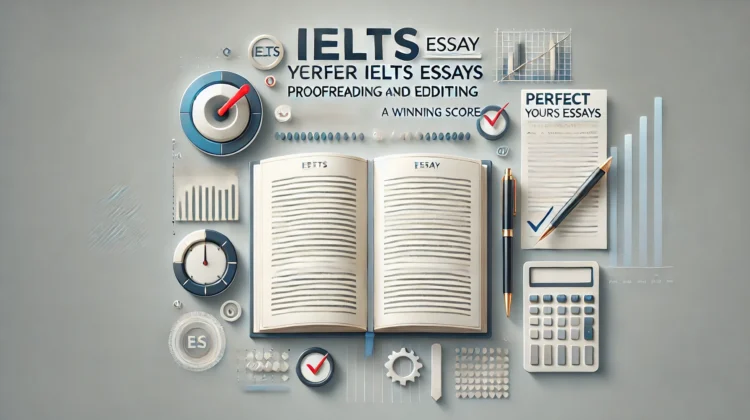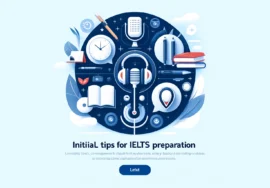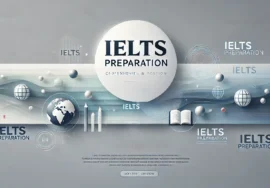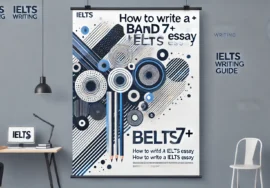
Perfect Your IELTS Essays: Proofreading and Editing for a Winning Score
Achieving a high score in the IELTS writing section requires more than just good grammar and vocabulary. A well-written essay demonstrates coherence, clear arguments, and polished language. Proofreading and editing are essential steps to refine your essay and maximize your band score. For instance, revising an essay to fix grammatical mistakes and improve sentence flow can turn a Band 6 essay into a Band 8 by making the arguments clearer and more compelling. In this comprehensive guide, we’ll explore the best strategies to perfect your IELTS essays through effective proofreading and editing techniques. With dedicated effort, you can transform a good essay into an outstanding one.
Why Proofreading and Editing Matter

Proofreading and editing serve different but complementary purposes. While proofreading focuses on correcting surface-level errors such as grammar, spelling, and punctuation, editing addresses deeper issues like structure, coherence, and argument strength. Together, they ensure your essay meets the high standards required by IELTS examiners, which include logical organization, grammatical accuracy, varied sentence structures, and the effective use of vocabulary. By addressing these areas, your essay can clearly and persuasively communicate your ideas.
Common Errors in IELTS Essays
- Grammar and Syntax: Incorrect tenses, subject-verb agreement issues, and misplaced modifiers.
- Spelling Mistakes: Often caused by rushing or unfamiliarity with certain words.
- Punctuation Errors: Missing commas, misplaced apostrophes, or overuse of exclamation marks.
- Logical Fallacies: Weak or unsupported arguments that reduce the impact of your essay.
- Redundancy: Repeating ideas unnecessarily, which wastes valuable word count and detracts from conciseness.
- Inconsistent Tone: Shifting between formal and informal language, which can confuse the reader.
The Impact on Your Band Score
Errors in your essay can lower scores in areas like grammatical range, lexical resource, and coherence. For example, inconsistent verb tenses can disrupt the flow of your writing and confuse the examiner, potentially reducing your score in grammatical range and accuracy. A polished essay not only avoids penalties but also leaves a strong impression on the examiner. Effective proofreading and editing help bridge the gap between a passable essay and one that truly stands out.
Step 1: Review the Essay Structure

A clear structure is the backbone of a strong IELTS essay. Start your proofreading and editing process by checking if your essay adheres to the standard format:
- Introduction: Briefly introduce the topic and outline your position.
- Body Paragraphs: Present two or three main ideas, supported by examples or evidence.
- Conclusion: Summarize your main points and reinforce your stance without adding new information.
Checklist for Structural Review
- Does the introduction clearly state your position or thesis?
- Are the body paragraphs logically organized, with each focusing on one main idea?
- Does the conclusion effectively wrap up the argument and reflect on the essay’s key points?
Common Pitfalls
- Introducing new ideas in the conclusion.
- Failing to provide examples to support arguments.
- Overloading paragraphs with too many ideas, reducing clarity.
Step 2: Focus on Clarity and Coherence

Coherence ensures that your essay flows logically, while clarity ensures your ideas are easy to understand. These two elements are vital for a high score in the “Coherence and Cohesion” criterion.
- Use Linking Words and Phrases: Ensure smooth transitions between sentences and paragraphs. Examples include “however,” “furthermore,” “as a result,” and “on the other hand.”
- Avoid Ambiguity: Replace vague terms with specific language. For example, instead of saying “this problem,” specify “environmental pollution.”
- Maintain Consistent Tone and Style: Ensure your essay consistently uses formal language suitable for academic writing.
Practical Exercise
- Read Aloud: Read your essay aloud to identify awkward phrasing or disjointed sentences. Hearing your words can highlight areas needing revision.
- Peer Review: Share your essay with a friend or peer and ask for feedback on the flow and clarity of your arguments.
Step 3: Polish Grammar and Vocabulary

Accurate grammar and a rich vocabulary are key to achieving a high band score. Use these tips to refine your language:
- Check Verb Tenses: Ensure consistency, especially in task 2 essays where you discuss hypothetical or future scenarios. For example, hypothetical situations often require the use of conditional structures.
- Use Collocations: Common word pairings like “make a decision,” “take action,” or “reach a conclusion” demonstrate natural language use.
- Avoid Repetition: Replace repeated words with synonyms. For instance, instead of repeating “important,” use “significant,” “vital,” or “crucial.”
- Vary Sentence Structures: Use a mix of simple, compound, and complex sentences to show grammatical range and flexibility.
Step 4: Correct Common Errors

Some mistakes are easy to overlook, especially when you’re familiar with your own writing. This familiarity can create a “blind spot,” as your brain tends to fill in gaps or correct errors automatically, making them harder to detect. For instance, you might skip over a missing word because you know what you intended to write. Breaking this familiarity by taking a break before proofreading or using tools to highlight errors can significantly improve accuracy. To spot them, try these proofreading techniques:
- The “Backward Reading” Method: Read your essay sentence by sentence, starting from the end. This disrupts the natural flow and helps you focus on individual sentences.
- Highlight Problematic Sections: Use different colors for grammar, vocabulary, and punctuation issues. This visual approach makes it easier to address errors systematically.
- Double-Check IELTS Task Requirements: Ensure you’ve addressed all parts of the prompt, including providing examples and explaining your position.
Step 5: Get Feedback

While self-proofreading is important, external feedback can provide a fresh perspective. Consider these sources for constructive criticism:
- Teachers or Tutors: They have experience with IELTS standards and can provide targeted advice.
- Online Tools: Use tools like Grammarly or Hemingway to identify grammatical errors and improve readability.
- Writing Groups: Join IELTS forums or writing groups where members exchange essays and feedback.
Benefits of Feedback
- Identifies blind spots in your writing.
- Helps you understand how your essay is perceived by others.
- Provides suggestions for improvement based on practical insights.
Final Touches
Before submitting or practicing your essay, make sure it is ready to leave a lasting impression on the examiner. This is your opportunity to ensure that your hard work is presented in the best possible light. Follow these additional tips to refine your essay to perfection:
- Take a Break Before Proofreading: Stepping away from your essay for a while can help you view it with fresh eyes and spot errors more easily.
- Use Digital Tools Wisely: While tools like Grammarly or Hemingway can highlight errors, always double-check their suggestions to ensure accuracy.
- Check for Consistent Formatting: Ensure that font sizes, margins, and line spacing are uniform throughout your essay for a professional appearance.
- Focus on Paragraph Transitions: Smooth transitions between paragraphs are crucial for maintaining coherence and keeping the reader engaged.
- Review Task Requirements One Last Time: Confirm that your essay addresses every part of the prompt and adheres to IELTS guidelines.
These additional steps, along with a systematic review of grammar, vocabulary, and structure, can elevate the quality of your essay and ensure it is polished to perfection.
Conclusion
Proofreading and editing are indispensable for crafting an outstanding IELTS essay. Key steps include reviewing the essay structure for clear organization, focusing on coherence and clarity, polishing grammar and vocabulary, and correcting errors through systematic proofreading techniques. By following these steps, you can ensure your essay is polished and effective. With consistent effort and a methodical approach, your essays will not only meet but exceed examiner expectations. Remember, practice makes perfect—the more you refine your essays, the closer you’ll get to mastering the art of IELTS writing. Good luck on your IELTS journey!








